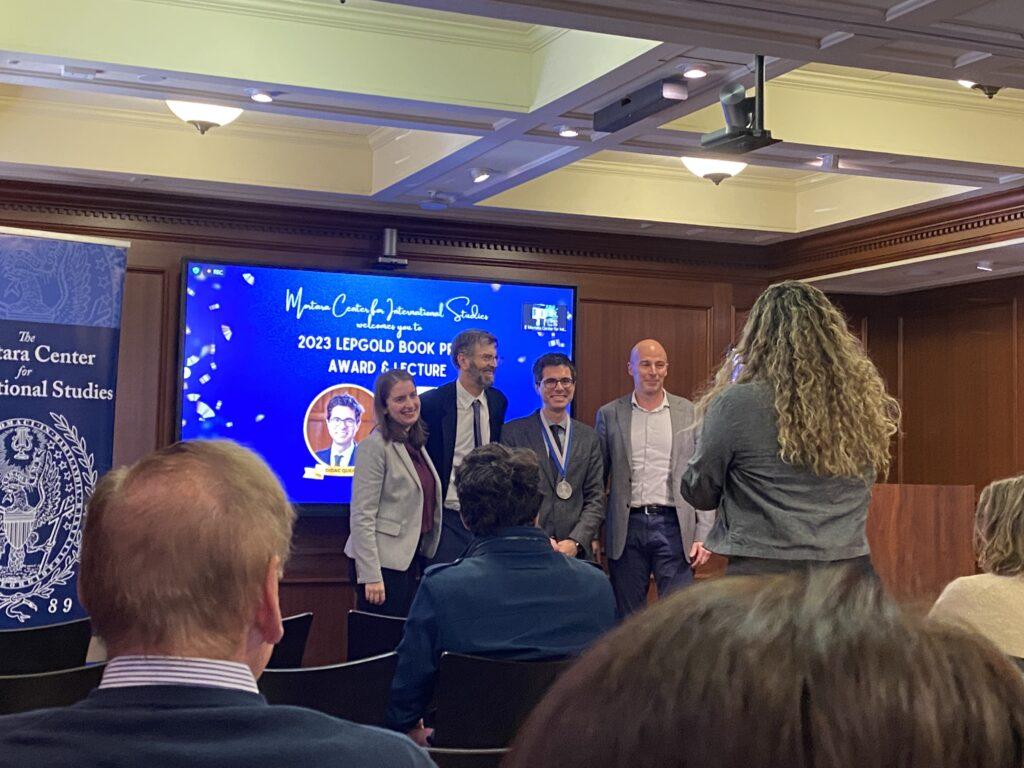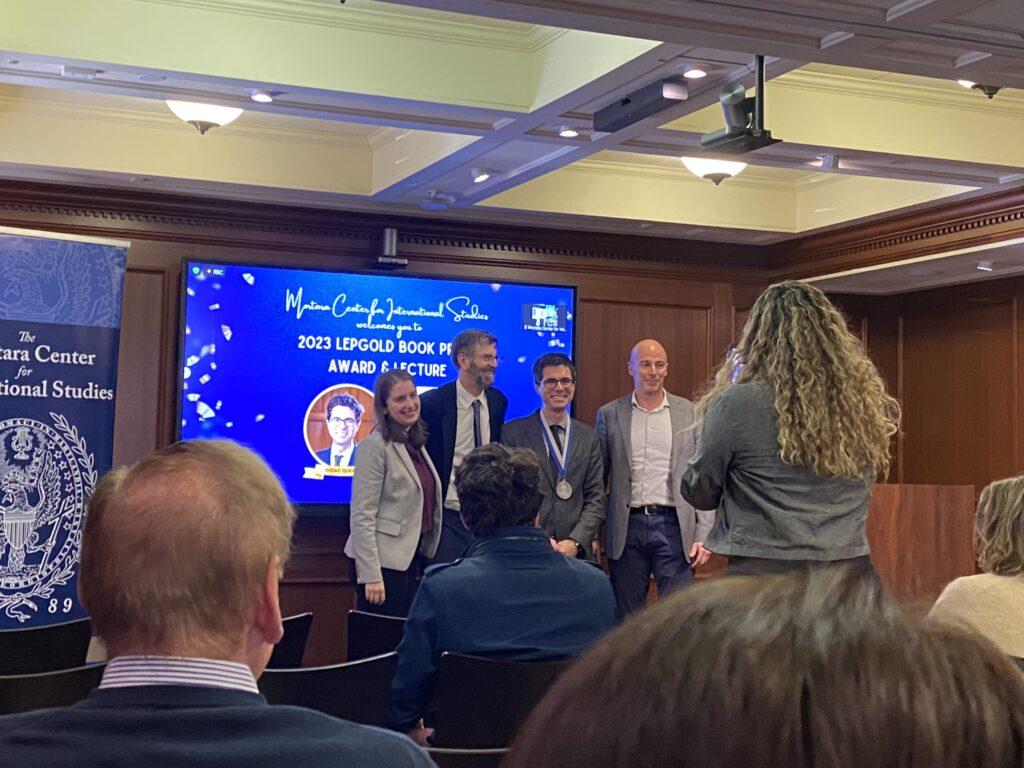The Georgetown University Mortara Center for International Studies honored the winner of this year’s Joseph S. Lepgold Book Prize on Nov. 30.
The annual Lepgold Book Award honors contributions to the mission of critical policy changes in the field of international relations. The winning author — this year, Didac Queralt, an assistant professor of political science at Yale University — is widely known as having written the best book regarding international relations for the year.
Queralt earned the award for his 2022 book “Pawned States: State Building in the Era of International Finance,” which argues that access to external finances push developing nations to have weak financial institutions and autocratic fiscal policies and examines the historical consequences of international aid and state-building.
Queralt, who was presented a medal for the award, said he recognized the competitiveness of the Lepgold Book Award and was thankful to receive it from the Mortara Center. Sponsored by the Edmund A. Walsh School of Foreign Service (SFS), the Mortara Center promotes scholarly research about global concerns, such as economics or public policy.
“I am very, very grateful,” Queralt said at the event. “I am flattered by this award, and I know that there are a lot of good books out there, so it means a lot.”
Elizabeth Saunders, the director of the Mortara Center, said Queralt’s “Pawned States” was distinct from all others reviewed for the award this year in regards to its research questions and argument.
“We are thrilled this year to be awarding the prize to ‘Pawned States,’” Saunders said at the event. “We had boxes and boxes of books. We enjoyed reading all of them, but we really felt that this one stood out.”

Andrew Bennett, a professor in the College of Arts and Sciences and the SFS, said the award is named for a former colleague, Joseph H. Lepgold, who died in a 2001 fire in Paris. Bennett said the award is meant to honor his legacy in global research with the recognition of groundbreaking research on international studies.
“What we’re looking for here is an A-plus book with an A-plus question, A-plus methods and an A-plus answer,” Bennett said at the event. “That’s what we have here.”
The winner of the Lepgold Book Award earns $1,000 and prepares a lecture about the book to give during the ceremony.
In his lecture, Queralt said his book prioritizes two main research questions about the causes of debt to the international sphere and how it encourages the financing of a developing nation.
“If external debt only reaches the taxpayers of a country, then we enter this critical cycle in which one source of government funds grows another,” Queralt said in his lecture. “Everybody is going to be accountable because the governments are going to lack resources to pay back these debts.”
Queralt said the history of international finance — particularly the international financial dependence of countries in the Global South — has modern connections and is not a singular interaction.
“We’ve seen that countries in the Global South have grown their extended amount of indebtedness in the last twenty years. At the same time, they are still having a harder time to pay back their debt,” Queralt said. “Because of that, there have been episodes of Southern revolt, and that coincided with the COVID crisis, but it was not only caused by the economic crisis created by COVID.”
Queralt said the economies of Zambia, Sri Lanka and Ghana represent historical dependence on international aid that featured crises during COVID. Queralt said these incidents of conflict based on economic dependency trace back to the 19th century.
“We know, thanks to the work of economists and economic historians, that this is not an isolated episode, this is not a new phenomenon,” Queralt said. “It has occurred more than 200 times in the past 200 years.”
“We should, as political scientists, try to understand why we get to these negative scenarios,” Queralt added.





















